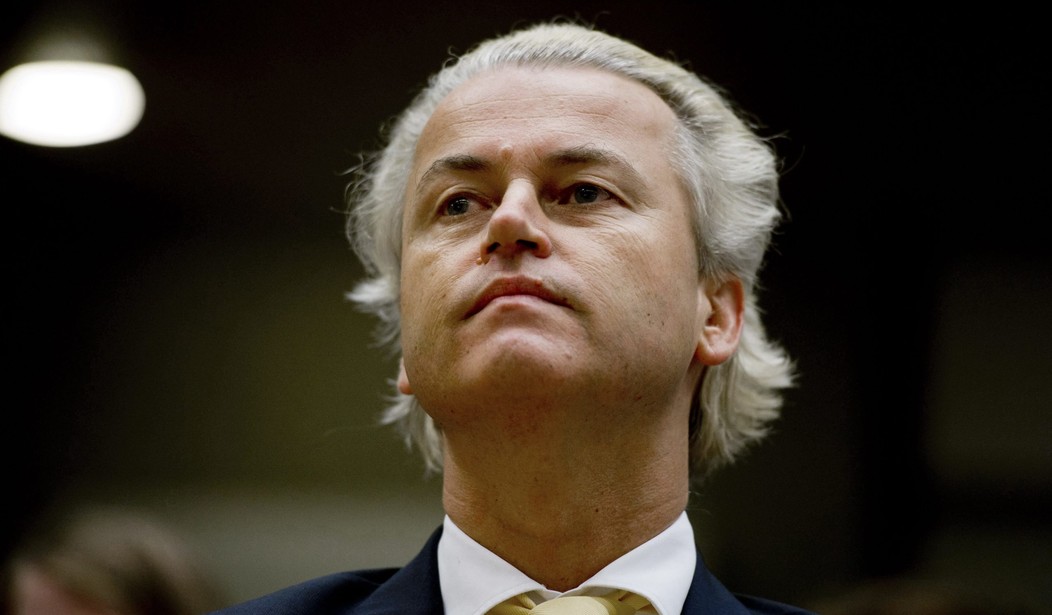Geert Wilders, chairman of the Party for Freedom (PVV), has been celebrating on Twitter today. The reason? His party is now the biggest party in the Dutch polls. With elections coming up in March 2017, the populist politician seems to be on track to become the Netherlands’ next prime minister.
According to the latest poll of Maurice de Hond, the Netherlands’ most famous pollster, the PVV would become the biggest party in parliament if elections were held today (link in Dutch): they’d get 33 seats in the 150-seat lower chamber.
Geert Wilders’ Freedom Party (PVV) is leading the polls in the Netherlands. The party wants to stop Islamisation and restore law and order. pic.twitter.com/YPIfa0XAsD
— Voice of Europe (@V_of_Europe) November 27, 2016
The PVV is the Netherlands’ one and only populist party. It’s more or less “conservative,” although certainly not conservative on issues such as health care. Wilders is especially well-known for his criticism of Islam and Europe’s open-borders policy, which he routinely — and accurately — describes as suicidal. His main goal is to end “the Islamization” of Europe generally and of the Netherlands specifically.
Additionally, Wilders and his party are the most Eurosceptic of all the parties currently in parliament. He is the Netherlands’ very own Nigel Farage, which he once again proved earlier this year when he and his allies won the Dutch referendum on the EU’s upcoming treaty with Ukraine. Wilders campaigned hard against the deal, arguing that it would eventually lead to the poor (and not entirely democratic) Eastern European country joining the European Union. Although proponents of the treaty said that would not be the case, the Dutch voter wasn’t convinced. Wilders and the “no” campaign won.
As usual when the elites are told they can’t do something they really want to do, our country’s politicians have been trying to push the treaty down our collective throats nonetheless. Strangely — or not! — most Dutch voters object to being ignored, which is undoubtedly one of several reasons why the PVV continues to gain in the polls.
Remarkably, a few weeks ago the PVV started to lose ground in the polls. In recent years the party has become virtually indistinguishable from their coalition partner, the Social Democrats. These days they’re basically a mixture of social democrats and crony capitalists. That changed after Donald Trump won the American elections, however. It seems that many Dutch voters have suddenly realized that there’s nothing wrong with populism, per se. Besides, the chances of Wilder making an even bigger mess than the current liberal-socialist coalition, voters rightfully believe, are rather small. Better yet: they’re non-existent. After all, the Dutch government has basically copied the failed policies of Angela Merkel, with the only exception being her economic policies, which have actually been successful.
Trump’s victory has taught Dutch voters that there’s nothing shameful about wanting to get rid of the establishment. And because Wilders clearly has a coherent vision for the future of the country, the risks of electing him are rather small. Unlike with Trump, you do know what you’ll get if you vote for Wilders.
If I still played the game of predicting election results (which I don’t), I’d certainly put my money on Wilders’ Party for Freedom winning the elections and, yes, Wilders becoming the Netherlands’ next prime minister. He won’t be able to do everything he says he’ll do, but he’ll certainly be a breath of fresh air and, what’s more, he can’t possibly do worse than our current prime minister, Mark “I heart Angela Merkel” Rutte.









Join the conversation as a VIP Member